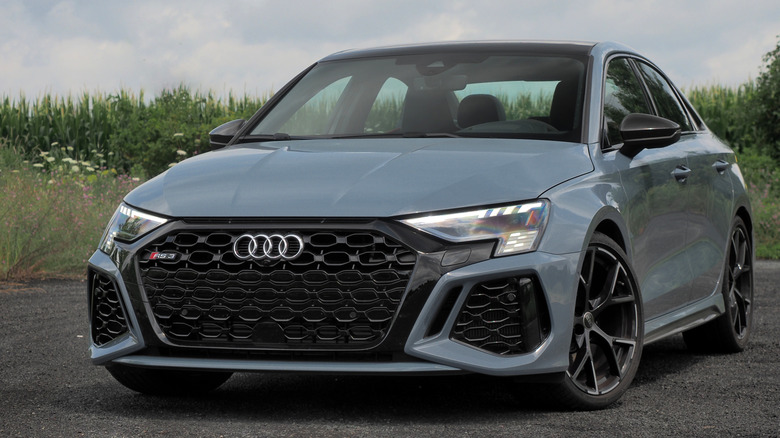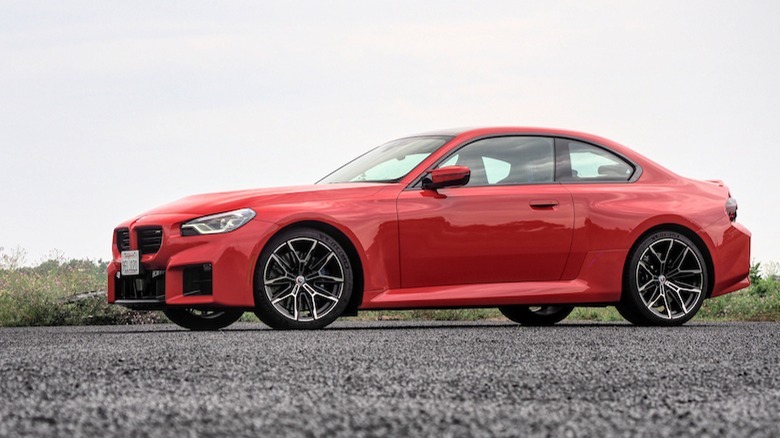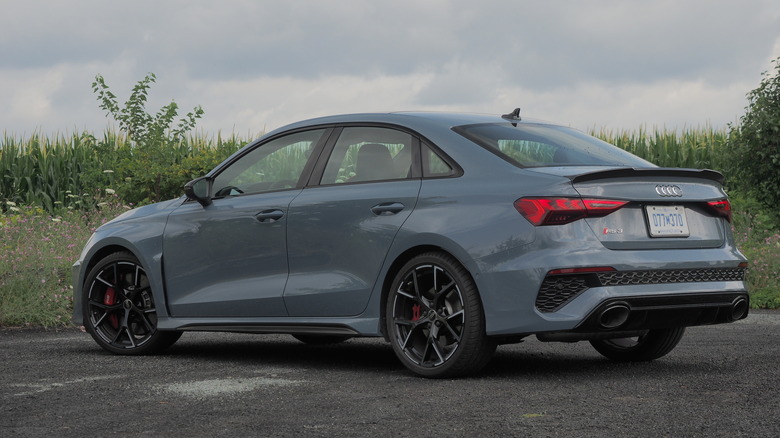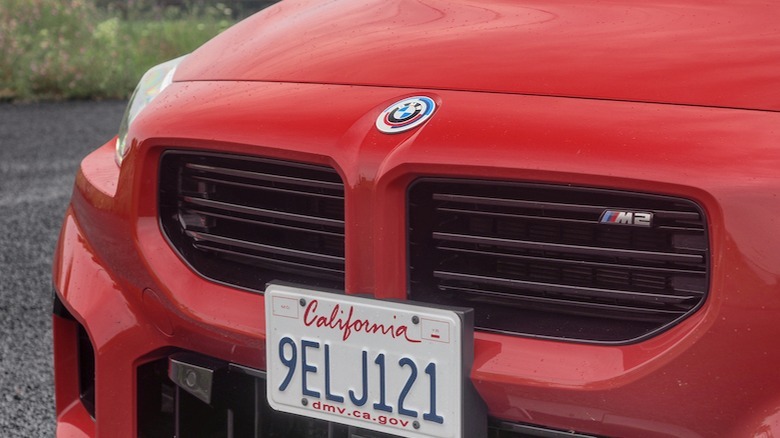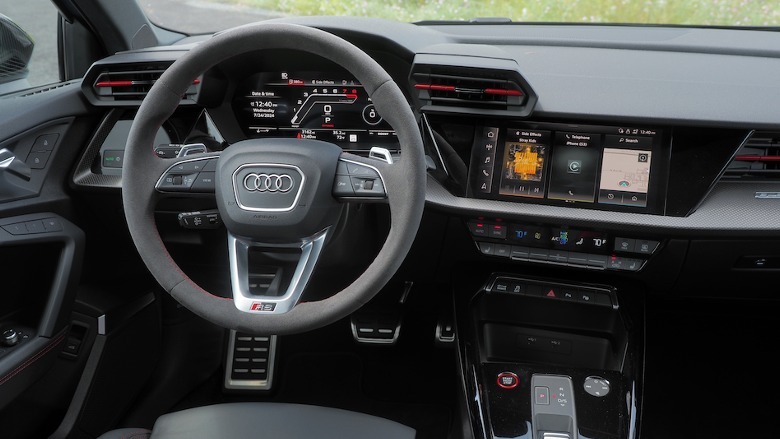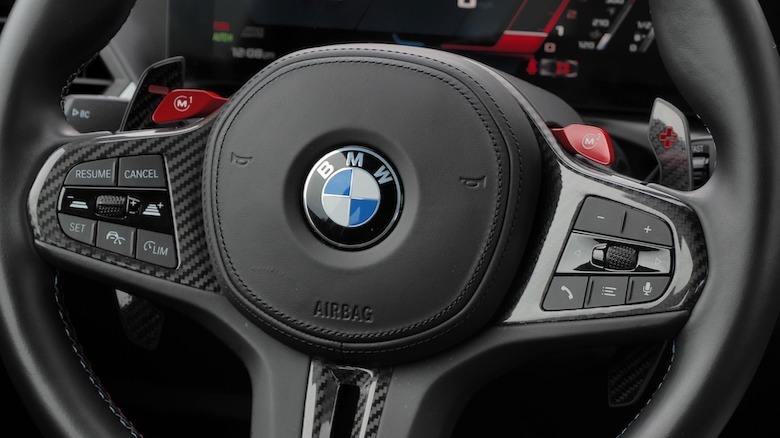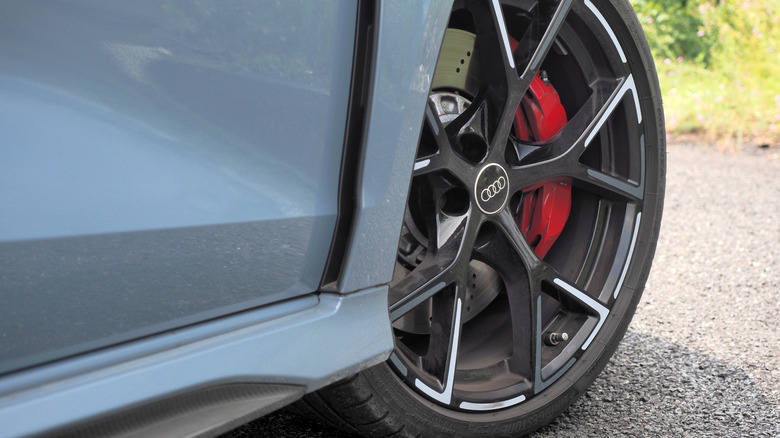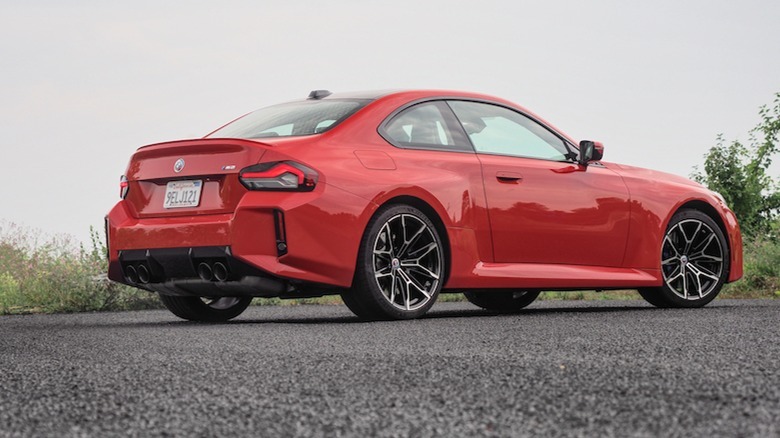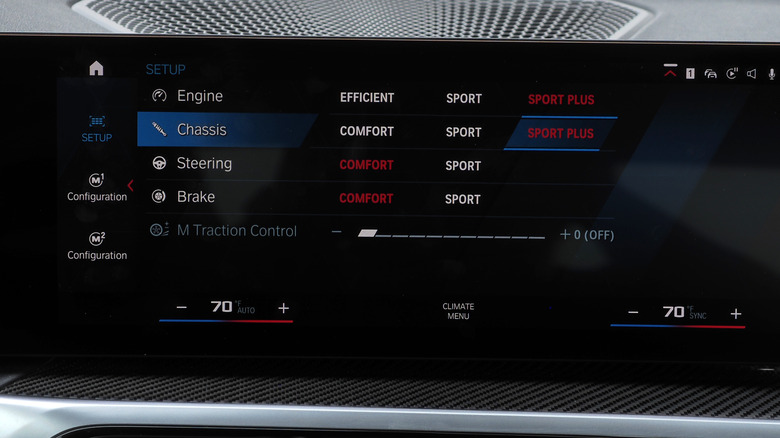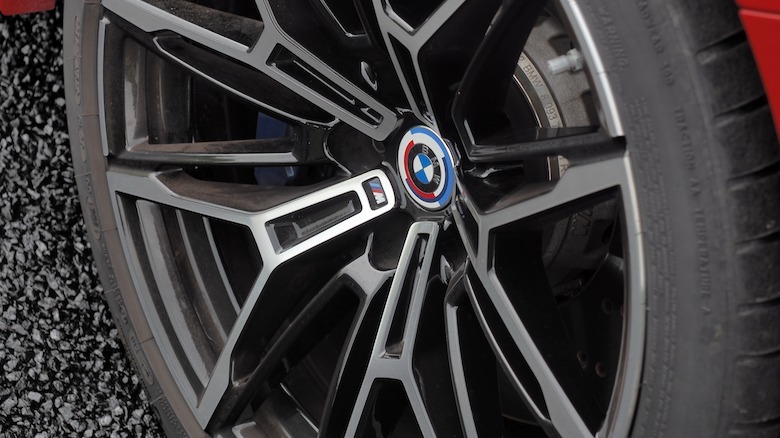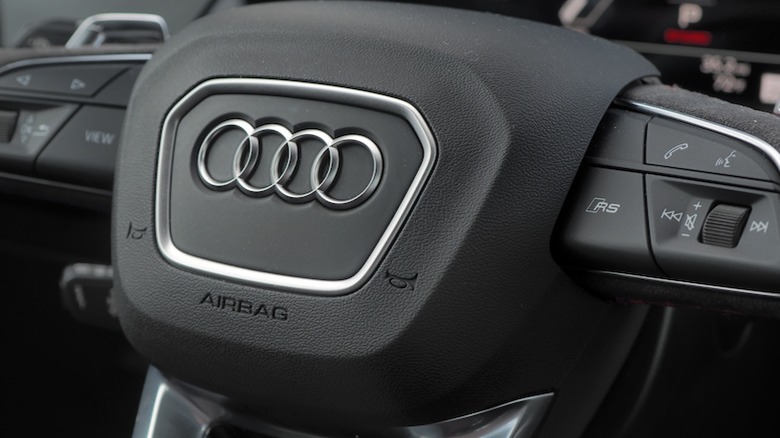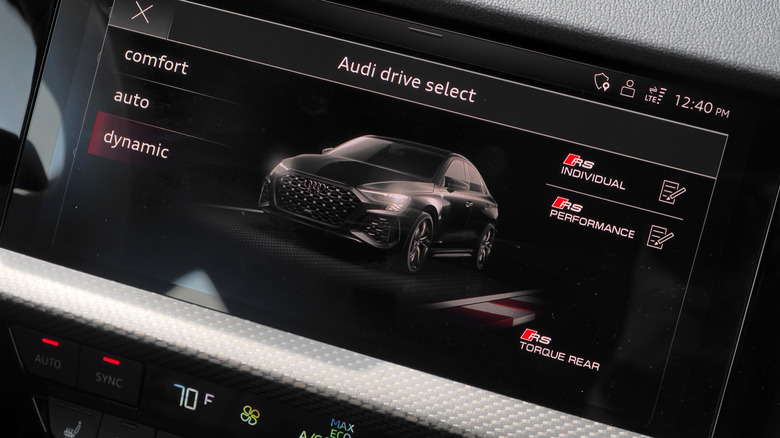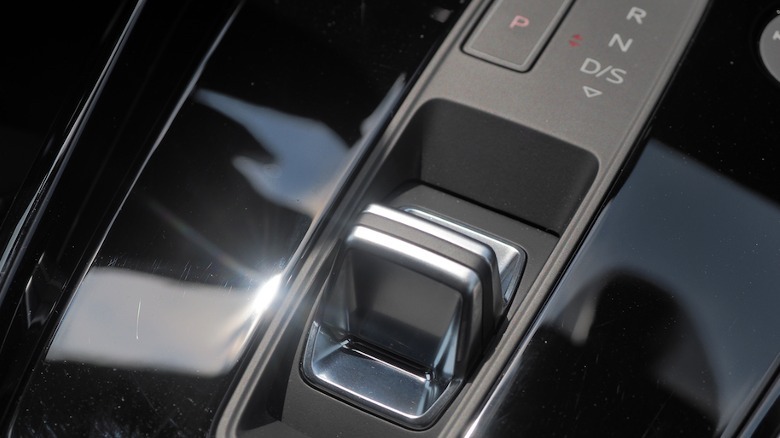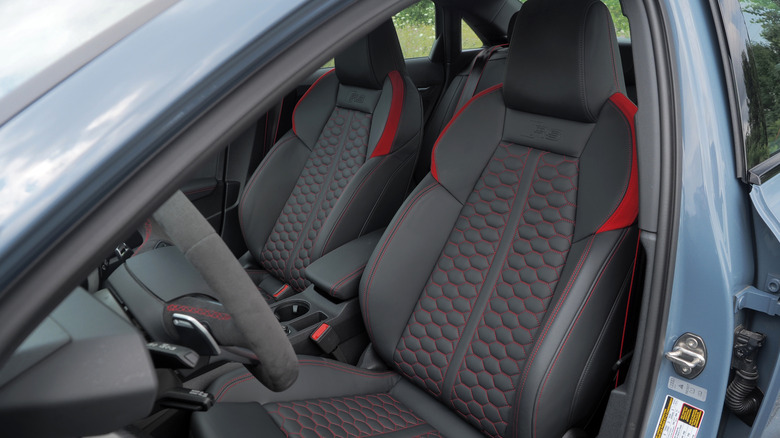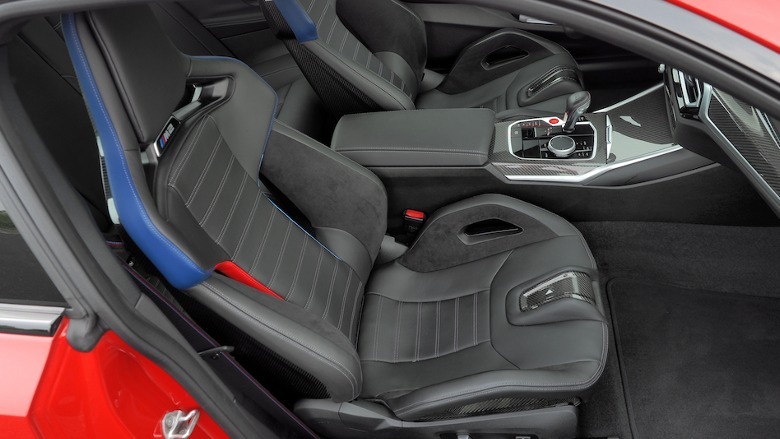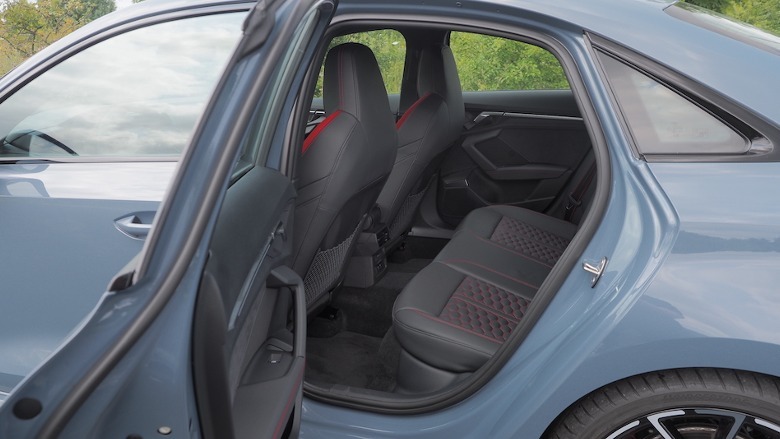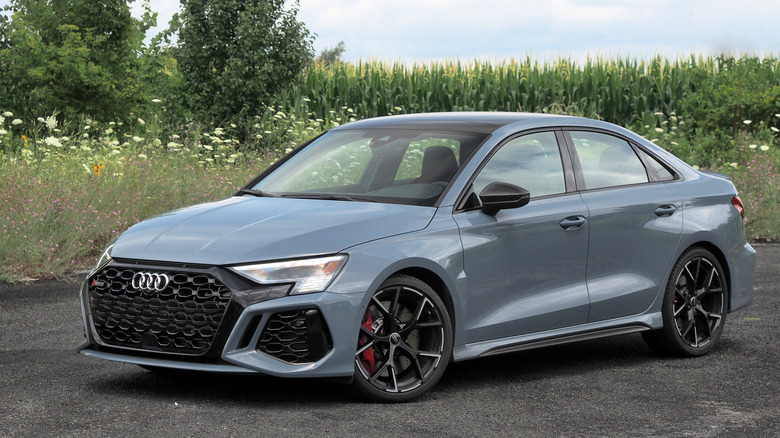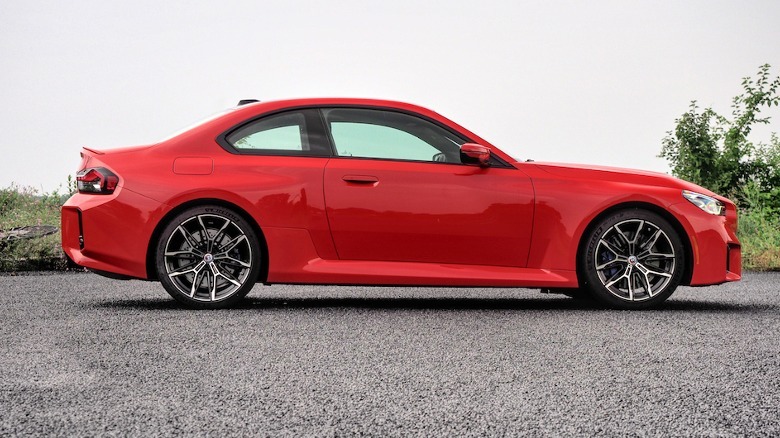Audi RS3 Vs BMW M2 Coupe: The Biggest Problem Is Choosing Between The Two
As "nice problems to have" go, trying to decide between BMW's M2 Coupe and Audi's RS3 sports sedan isn't likely to earn you much sympathy. The performance pair sit at the entry point of each automaker's line-up in the U.S. market, priced from under $65,000 before destination and extras. In return, you get two surprisingly different flavors of speed and handling charm.
On the one hand, the M2 Coupe makes a compelling argument as the unexpected sweet-spot of the M range. Its 3.0-liter twin-turbo six-cylinder gas engine is an endearing way to get 473 horsepower and up to 443 lb-ft of torque, and — bucking industry trends — it's offered with either an 8-speed automatic or a 6-speed manual transmission. The latter does 0-60 mph in 4.1 seconds; the auto trims that to 3.9 seconds.
In contrast, the RS3 takes Audi's subcompact A3 sedan and drops in an oddball five-cylinder turbocharged gas engine. The result doesn't just sound distinctive, but — with Quattro all-wheel drive as standard — is potent, too. 401 horsepower and 369 lb-ft of torque may fall short of what the M2's inline-six musters, but the Audi bests the BMW with a 3.6 second 0-60 mph time.
Nearly silly versus almost subtle
Design is subjective, but it's probably fair to say there's a loud option here, and a more subtle one. In the grand scheme of the A3, the RS3 is definitely more aggressive. Its fenders are more flared, its air vents more gaping; special 19-inch 5-Y-spoke wheels help distinguish it from its more sensible siblings, with a front track that's a full 2-inches wider.
Nonetheless, unless you go for Audi's eye-searing Kyalami Green, more heads will turn for the M2. Its smaller grille may buck recent BMW trends — for the better, I'd argue — but the chunky fenders, chopped-down wheelbase that's more than 4-inches reduced compared to the M3 and M4, and swollen rear give it an exaggerated, almost toy-like appearance.
On the inside, though, neither car strays too far from its more mundane relatives. Slabs of carbon fiber or gloss black trim, alongside bright red highlights, dress up familiar dashboards. The RS3's Alcantara-wrapped steering wheel is tactile and grippy, and its "RS" button cycles through two dedicated preset modes.
The M2, in contrast, has a pair of deeply tactile and pleasing metal shortcut toggles atop the wheel, to do much the same thing. Otherwise, the BMW's displays are larger and more impactful than the Audi's, though both support the essentials like wireless smartphone projection.
Almost too powerful for everyday fun
Both cars have more than enough power for regular roads. That's not entirely a compliment: there's an argument to be made that, while super-high horsepower figures are great for bragging rights, they're not just wasted but actively detrimental on public streets. Hear me out.
Unless you take a trip to the Autobahn, you're going to be seriously limited in places to stretch the Audi or BMW's abilities. Sure, on a track — like where we first tested out the latest-generation RS3 — you can wring out the full potential of its 401 horsepower, and see the impact of that trick rear differential. Doing the same thing on regular, public roads is not advised, and the same goes for the M2.
There's definitely an argument to be made that lesser-powered cars — think MX-5 Miata and Elantra N — end up being more fun day to day, just because you have to work to get the best out of their more humble drivetrains. The RS3 and M2 aren't quite at the point where you can only tap under 50% of their punch without instantly shredding your license, but they're certainly getting there. Frankly, neither do much to encourage restraint with their distinctive (and lovely) exhaust notes.
Giddy up
They drive differently, of course, as you'd expect from an all-wheel drive sedan versus a rear-wheel drive coupe. The M2 leans heavily into that old-school BMW recipe, with a standard M Sport Differential nudging power between the left and right rear wheels according to traction demands. Set to Comfort, and it's a refined — albeit stiff, despite the most cosseting configuration of its also-standard adaptive dampers — ride, predictable and still fun. Flip through to Sport or Sport Plus modes, though, and things get far more entertaining.
If the road — and your talents — suffice, it's easy to kick out the rear end and steer with the gas pedal. Indeed, the M2 makes it whimsically easy to enjoy its power, and for that matter adjust the M Traction Control through 11 levels of intrusion (or turning it off altogether). Unless you're being utterly ridiculous, real-world inevitabilities like rough asphalt don't upset the fun too much; being able to tweak the custom configurations to, say, soften the chassis a little while still getting maximum growl from the inline-six definitely helps.
The Audi is a little more complex in some ways. It gets the usual Comfort and Dynamic drive modes, along with a pair of shortcuts — RS Individual and RS Performance — for driver-defined and maximum-potency settings, both cycled through by the RS button on the wheel. The RS3 puts its Quattro to excellent use, too, with lashings of low-end torque paired with grippy confidence for a scalpel-style approach to driving fast.
Quattro with a rear-wheel secret
Thing is, Audi isn't unaware that people love rear-wheel drive cars, though. Tap the RS Torque Rear option in the RS3's drive mode display — and agree to the disclaimer that it's intended for track-use only — and the sedan's standard rear differential gets to play with the bulk of the five-cylinder's torque. It uses two clutches to direct that power left or right.
The reason for Audi's disclaimer, though, is that where rear diffs generally focus on making more power usable, the RS3 is merrily willing to stray into silliness. Not for nothing did my colleague call it "the rally racer experience," as the RS3 overcomes its propensity to precision above all else. If the allure of (controllable) slides has always put you off AWD, the RS3 may debunk that assumption.
Things aren't perfect, of course, with either car. Audi's torque converter automatic is smooth in Comfort mode, but feels laggardly when you're snapping at the paddles yourself. It much prefers to handle things itself. BMW's manual, meanwhile, is a sweet thing, though you get less torque with it: 406 lb-ft, a 37 lb-ft dip versus the 8-speed auto. More driver involvement means a slower car in a straight line, versus the Audi, though there's a convincing argument that the stick is far more in keeping with the M2's overall fun proposition.
A nod toward practicality
Despite what you might assume, it's not entirely true to claim that the Audi is the more practical car of the two. Certainly, if passengers are your priority, the RS3 makes most sense. Though small in comparison to the rest of the automaker's sedans, its back bench can still handle two adults — albeit snugly — and the rear doors makes accessing them straightforward.
The M2's second row feels like far more theoretical seating, in contrast: you'd need to have seriously displeased the driver to be relegated back there. However, the BMW's 13.8 cu-ft of trunk space comfortably out-stows the Audi's 8.3 cu-ft. For a sneaky child-free weekend away, it's the M2 which avoids the need to pack too lightly.
If you're picking a car to live with, a daily driver for all twelve months (and, more important, for all four seasons if you happen to live in a place where weather between them can vary significantly), there's more than just cornering glee and straight-line speed to consider. Neither has especially promising ground clearance if deep snow is on the agenda, though the Audi's Quattro all-wheel drive would unsurprisingly be the sensible pick for handling icy winters. That's not to say I wouldn't be curious what an M2 on proper snow tires might be capable of.
There's no bad choice, here
It's a cop-out, but honestly the very fact that we have two such interesting, entertaining, and (relatively) attainable performance cars on sale in neighboring dealerships is something worth celebrating, regardless of whether you're an Audi or BMW fan. You can nitpick the design choices, and the practicality, and the running costs — the RS3's 23 mpg combined rating looking positively frugal, nearly, compared to the M2's 19 mpg — but if you've been bemoaning the dearth of new fun on four wheels, you should be paying better attention.
The relentless rise of crossovers and SUVs hasn't been short of high-power variants. BMW will merrily sell you a $76k X3 M, for example, while those on a stricter budget can get a larger, but less-powerful Audi SQ5 from $58k. Still, even for all the M and Audi Sport divisions' collective talents, a crossover just doesn't have the same physics advantages of a sedan or coupe.
Were it my money, and my sole transportation, the RS3's all-wheel drive would probably give it the edge considering the Midwest winters I'd expect it to handle. I'd always have that simmering jealousy of the M2's stick shift, mind.
